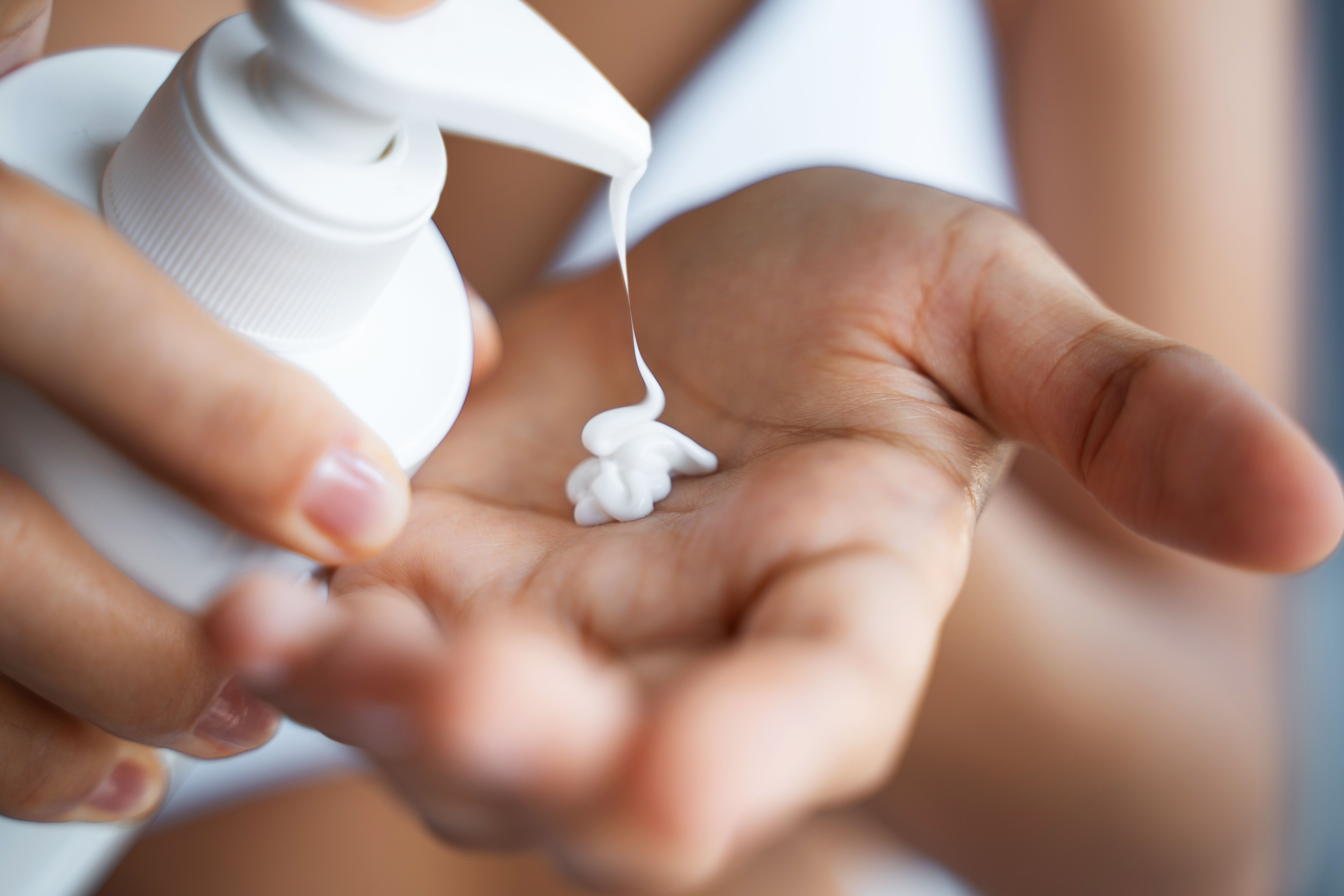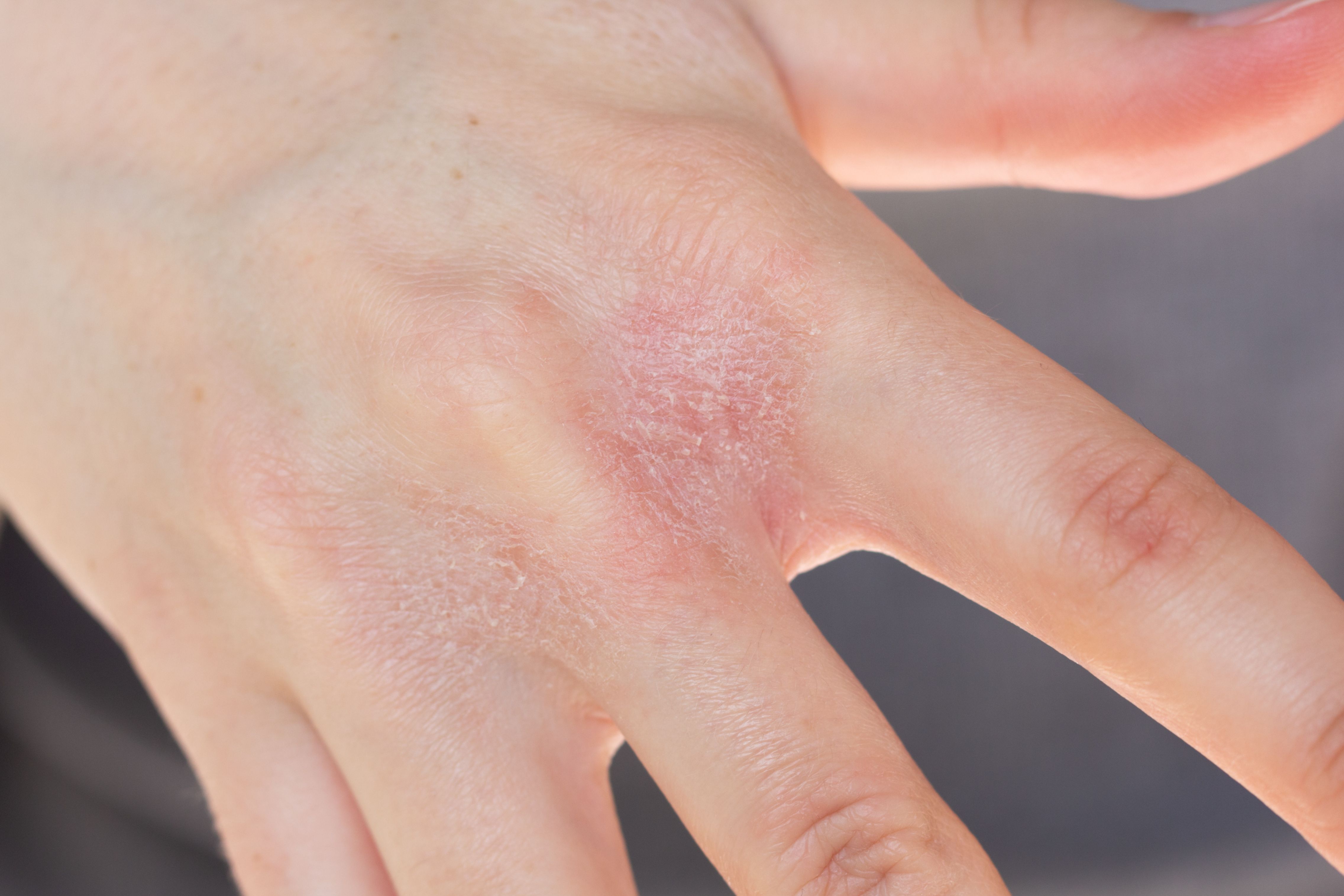- Acne
- Actinic Keratosis
- Aesthetics
- Alopecia
- Atopic Dermatitis
- Buy-and-Bill
- COVID-19
- Case-Based Roundtable
- Chronic Hand Eczema
- Chronic Spontaneous Urticaria
- Drug Watch
- Eczema
- General Dermatology
- Hidradenitis Suppurativa
- Melasma
- NP and PA
- Pediatric Dermatology
- Pigmentary Disorders
- Practice Management
- Precision Medicine and Biologics
- Prurigo Nodularis
- Psoriasis
- Psoriatic Arthritis
- Rare Disease
- Rosacea
- Skin Cancer
- Vitiligo
- Wound Care
News
Article
An OTC Moisturizer’s Effects on Skin Ceramide Levels
Author(s):
An OTC moisturizer was found to improve skin ceramide levels in patients with eczema-prone skin.
Yakobchuk Olena/AdobeStock

Ceramide levels in eczema-prone skin can get a boost from “eczema-soothing moisturizers” patients can buy at the drugstore, one study has found.
Researchers at Medical Dermatology Associates of Chicago and Galderma Laboratories came to this conclusion after performing a single-center, randomized, double-blind, split-body study of healthy men and women of all Fitzpatrick skin types and diverse ethnicities with eczema-prone skin.1
The 30 subjects all had self-perceived “persistent mild to moderate eczema-prone skin” (described as dry, itchy, and flaky). The mean age of the subjects was 54.2 years, and the majority (83.3%) were female. The research was presented in a poster at the Maui Derm Hawaii 2024 conference in Wailea, Hawaii and was funded by Galderma Laboratories.
For the study, an eczema-soothing moisturizer (Cetaphil Restoraderm) was applied twice daily for 4 weeks to the assigned side of the body. Tape stripping was utilized to analyze ceramide NS and AS levels in skin from the arm and leg. For each subject, tape stripping was performed at the volar forearm and outer lower leg at baseline and week 4.
At each separate site, 4 strips were applied sequentially to remove approximately 0.1-1μm of the stratum corneum with each application; the first 3 strips were discarded and the fourth (deepest application at approximately 2-4μm) was retained for analysis.
At week 4, the mean % increase in NS and AS ceramides from baseline was 41.6% in arm samples and 48.3% in leg samples; there was a 44.9% increase in overall samples.
Together, ceramide content was significantly increased for arm and leg sites at week 4 compared to baseline. Individually, only the leg achieved a significant ceramide increase of 48.3% after 4 weeks of ESM application, the researchers reported.
Normalization of ceramide levels in eczema-prone skin may improve skin barrier function, diminish bacterial colonization, and minimize transepidermal water loss, according to the researchers, citing past work on the role of sphingolipids (including ceramides) in dermatologic diseases.2
Ceramide-containing products may also help improve patient adherence to prescription acne treatment, according to a recent review in the Journal of Cosmetic Dermatology. A group of 9 dermatologists concluded that ceramide-containing skin care may help enhance acne treatment and adherence by combatting skin barrier irritation from topical medications such as retinoids, antibiotics, and benzoyl peroxide.3
Related Articles
Ceramide-Containing Sunscreen Improves Skin Hydration
The Effect of Ceramide Products on Dry Legs
References
- Lio P, Emesiani C, Nguyen T. Eczema-soothing moisturizer and ceramide levels in patients with eczema-prone skin. Poster presented at: Maui Derm Hawaii 2024; January 22-26, 2024; Wailea, HI.
- Borodzicz S, et al. The role of epidermal sphingolipids in dermatologic diseases. Lipids Health Dis. 2016;15:13. DOI: 10.1186/s12944-016-0178-7
- Schachner LA, Alexis AF, Andriessen A, et al. Insights into acne and the skin barrier: optimizing treatment regimens with ceramide-containing skincare. J Cosmet Dermatol. 2023;00:1-8. doi:10.1111/ jocd.15946.
Newsletter
Like what you’re reading? Subscribe to Dermatology Times for weekly updates on therapies, innovations, and real-world practice tips.









